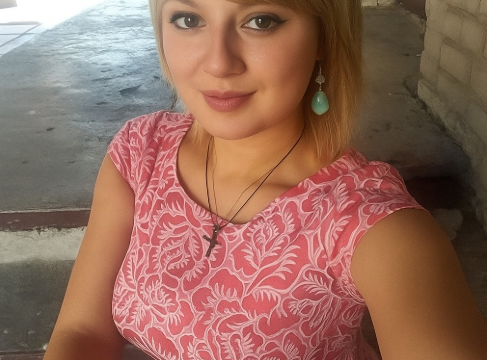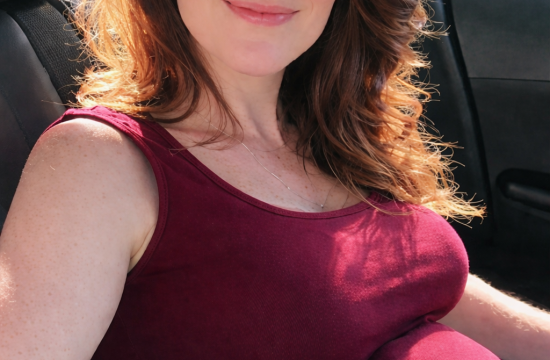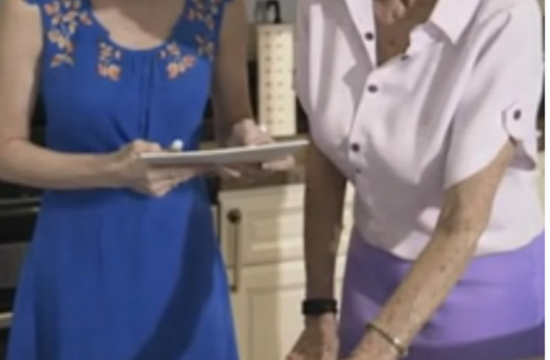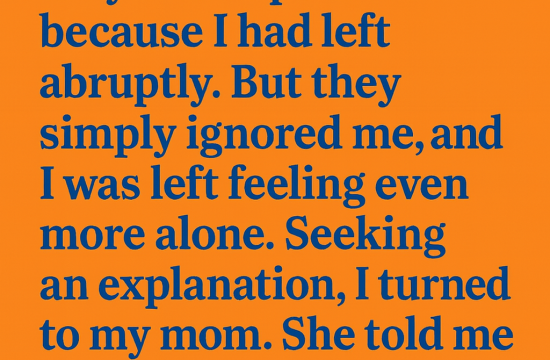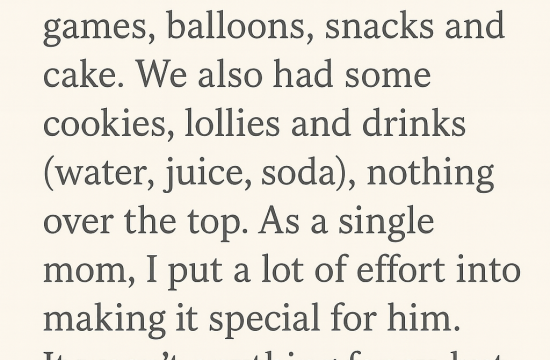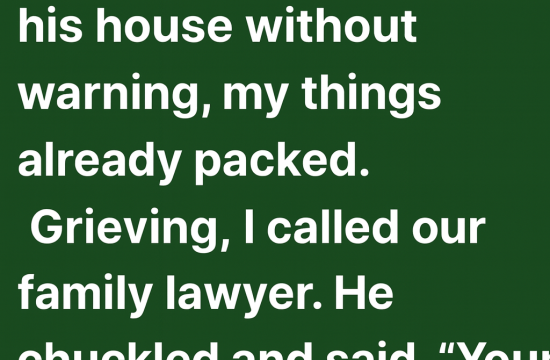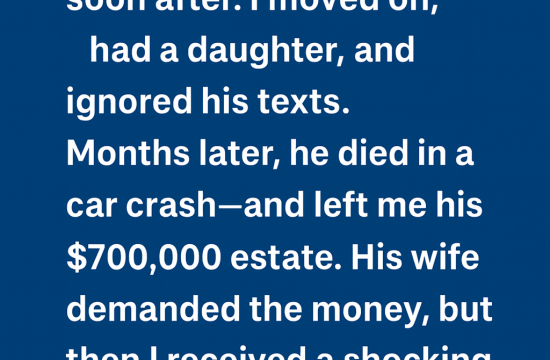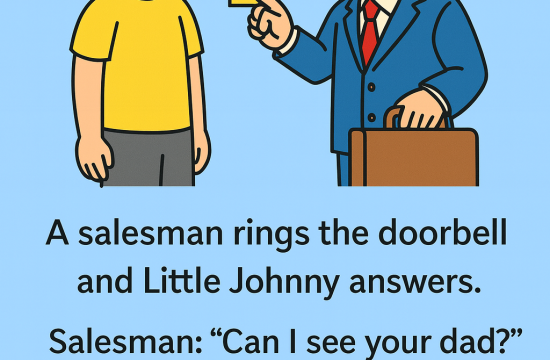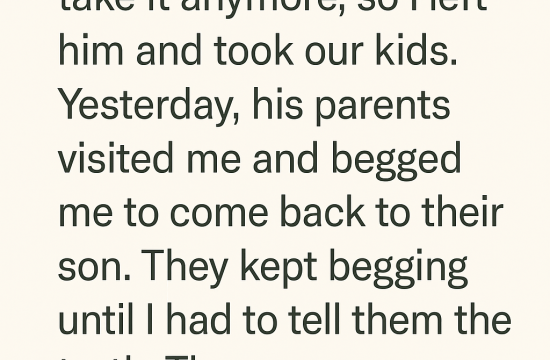I never thought I’d see the day when my sweet Penelope would look at me with such disappointment in her eyes. The same eyes that once lit up whenever I entered a room now refused to meet mine. Something had shifted between us, and the silence that followed felt heavier than any words.
For sixteen years, my husband Sam had been my rock, my constant. We met in college, fell in love quickly, and built a life together. He became the family I had chosen, the one I clung to when the world felt cold.
I grew up with just my mother. She worked two jobs to keep us afloat, teaching me resilience, resourcefulness, and the meaning of unconditional love. My father was never in the picture, and Mom rarely spoke of him. It was just the two of us in that tiny apartment, surviving and laughing through hardship.
When Mom passed away last year after a short battle with cancer, I felt like a kite cut loose from its string. Her last weeks were filled with whispered confessions, faded photographs, and secrets she had buried for decades—truths that reshaped everything I thought I knew about our family.
Now, Sam and our daughter Penelope were all I had. They were my anchors. Our modest home was filled with warmth and banter, with pizza nights and salad debates, with laughter that stitched our little trio together. Those simple rituals were sacred.
Until suddenly, they weren’t.
Sam had gone on a short work trip, and Penelope and I were left alone. That’s when I noticed the distance. At dinner one night, she pushed food around her plate, her shoulders rigid, her eyes refusing mine.
“How was school?” I asked.
“Fine.” One word. Final.
When I tried again, she snapped, “Nothing happened with MY FRIENDS.” The emphasis cut through me. Something had happened—just not what I thought.
Later, I tried to comfort her with hot chocolate, her favorite since she was little. She refused to let me in. And then came the eruption:
“How could you, Mom? I never thought my mother could be like this!”
I begged for an explanation, but all I got was a slammed door.
Hours passed with me sitting outside her room, whispering through the wood, pleading for her to talk. Finally, a folded note slid out.
I know what I saw. Don’t pretend it’s not true.
My stomach dropped.
Then another note: If he comes back tonight, I’ll tell everyone—especially Dad—what happened in the garage.
My hands shook. She must have seen us two nights ago. She wasn’t supposed to be home.
That night had begun like any other. Penelope had left for a study session. I’d gone to the garage—not to work on pottery, but to pace nervously. Three days earlier, I’d received a text that changed everything:
I found you. My name is Adam. I think I’m your brother.
At first, I dismissed it. Then came another, with proof: an adoption paper and a photo of my mother as a teenager, holding a newborn.
On her deathbed, Mom had confessed. At seventeen, her parents forced her to give up a baby boy. She named him Adam and never stopped loving him. She tried to find him later in life, but the records were sealed. She carried that loss until the day she died.
And now, here he was, standing at my garage door.
When I met Adam, the resemblance was undeniable—our mother’s eyes, her quiet strength. We spoke hesitantly at first, then more openly, until finally we embraced. A hug years overdue. A hug that mended something broken in both of us.
That was the moment Penelope walked in. She saw me, her mother, locked in an emotional embrace with a strange man. No wonder she thought the worst.
Back in the hallway days later, I slid a folder of documents under her door—Mom’s final letter, Adam’s adoption record, proof of who he really was. Hours later, the door opened.
“So he’s not… someone you’re hiding from Dad?” she asked, voice trembling.
I shook my head, tears brimming. “No, honey. He’s your uncle. My brother. I wasn’t ready to tell anyone yet.”
Her expression softened, just a little. “You looked scared that night.”
“I was,” I admitted. “I wanted a sibling my whole life. I just… needed time to process before telling you and Dad. But I should have trusted you both.”
She didn’t answer, but she didn’t shut me out again.
When Sam returned, Penelope blurted it out: “Mom’s been meeting a man in the garage.”
So I told Sam everything. I showed him the folder, the letters, the proof.
He studied it quietly before pulling me into a hug. “I’m proud of you. But no more secrets, okay?”
“No more secrets,” I promised.
A week later, Adam came to dinner. Penelope sat stiffly at first, suspicion clouding her eyes. Then he showed her a photograph of Mom, just seventeen, holding him as a baby.
“She looks like you,” Penelope whispered.
“She does,” Adam said gently.
And just like that, something shifted.
Later that evening, Adam mentioned he played guitar. Penelope’s eyes lit up—she’d been begging for lessons for months. He offered to teach her a few chords, and her face broke into a genuine smile for the first time in days.
That was the beginning of something beautiful.
Now, Penelope and Adam text almost daily. They trade memes, argue about movies, share songs. Every Saturday morning, he comes over with his guitar, and the two of them strum and laugh in the living room while I make pancakes.
Last night, I overheard her whisper, “I’m really glad you’re here.”
And I stood quietly in the hallway, smiling through tears.
Because some stories don’t start the way you expect.
Sometimes, secrets tear holes before they stitch families back together.
And sometimes, when the past knocks on your door, it isn’t there to destroy you—
It’s there to complete you.


